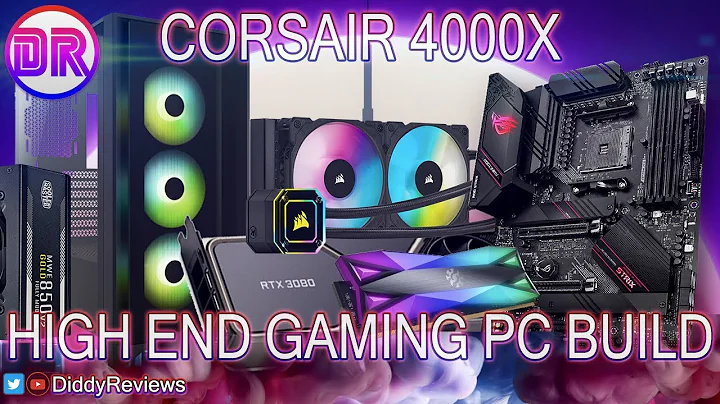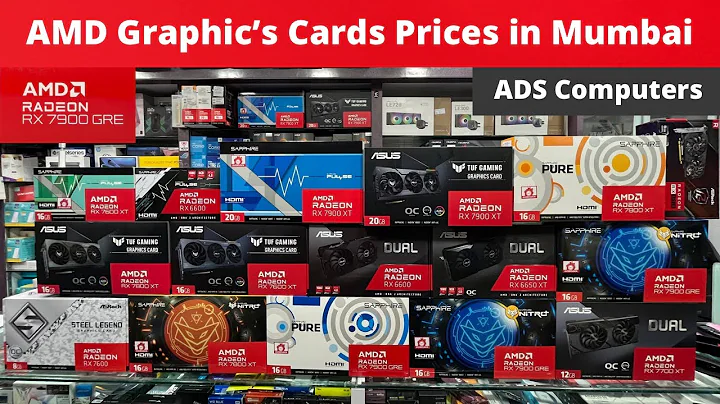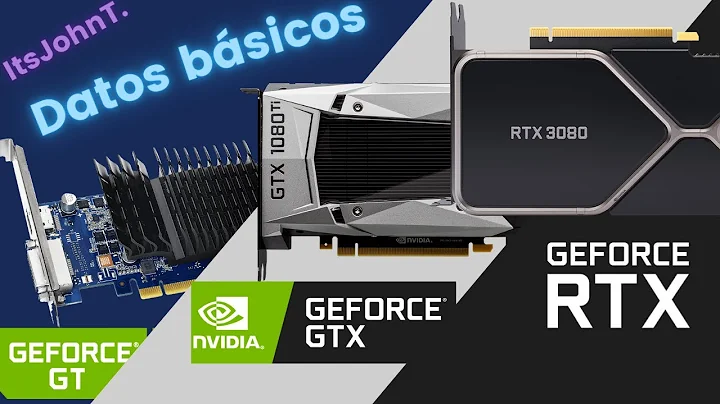The Fate of Old GPUs: AMD Discontinues Driver Support For Pre-Polaris
Table of Contents
- Introduction: The Dark Time for PC Gamers
- Nvidia's Announcement on Kepler GPUs
- AMD's Goodbye to GCN 1-3
- The Nature of Business: Declining Benefit for Old Architectures
- Lack of Modern, Inexpensive Options for Consumers
- The Frustration of Limited Budgets and Limited Support
- Nvidia's Attempt with Rehashed Pascal and Turing Cards
- The Uncertain Future of AMD's Supported GPUs
- The Gap in Performance and Price Range for AMD GPUs
- Personal Impact and Future Videos
The Dark Time for PC Gamers and the Fate of Old GPUs
For PC gamers, these past few months have been filled with darkness. The Scalper Pandemic has made it nearly impossible to get our hands on the latest GPUs. However, we have been able to find solace in the back catalogue of old-but-gold GPUs like Nvidia's Kepler and AMD's GCN. But now, even those once reliable options are facing uncertain futures.
Nvidia's Announcement on Kepler GPUs
It comes as no surprise that Nvidia has announced the end of support for Kepler in future driver updates. Many users have felt that Kepler was not well-supported from the beginning, with Nvidia quickly moving on to their Maxwell architecture. This means that expensive cards like the 770, 780 Ti, and the first gen Titan are slowly becoming outdated and less compatible with modern gaming.
AMD's Goodbye to GCN 1-3
What comes as a bigger shock is AMD's decision to say goodbye to GCN 1 to 3. The Radeon HD 7000 series, 200 series, and 300 series will no longer receive future software support, and will eventually experience the same compatibility issues as the HD 6000 series does now. The promise of Fine Wine, where older cards continue to perform well over time, now seems too good to be true. It appears that the days of 2013 cards packing a punch eight years later are numbered.
The Nature of Business and Declining Benefit for Old Architectures
In the world of business, the phasing out of old architectures is understandable. As the 8th generation consoles become outdated, investing resources in software development for these old architectures provides diminishing returns for the company. While it may seem like a logical decision for gaming companies to encourage consumers to upgrade to newer cards, the reality is that both AMD and Nvidia are currently thriving financially, despite the cries from their customers for modern and affordable options.
Lack of Modern, Inexpensive Options for Consumers
This situation feels almost cruel to the average gamer. With a budget of £100-200 or the equivalent in their local currency, there are limited options available from AMD that the company is actually willing to support. Nvidia's partners have attempted to rehash some Pascal and Turing cards, but like clockwork, they have quickly become targets for scalpers. On the used market, one can find GTX 9 series or low-end 10 series cards that still have some support, but what about AMD?
The Gap in Performance and Price Range for AMD GPUs
For those with a limited budget, the options from AMD seem lacking. The RX 460, often touted as an affordable option, falls short in terms of performance, closer to that of an R9 270. It's hard to justify its £80-100 asking price. Moving up the price range, there's a significant gap until the 4GB RX 470, which can cost anywhere from £140 to close to £180. The choices become even more limited and expensive.
Personal Impact and Future Videos
As a content creator who has often praised the greatness of the R9 200 cards, this situation hits close to home. I have a lineup of other Radeon cards waiting to be reviewed, but now they are all facing retirement. It will undoubtedly change the tone of my future videos. Goodbye Kepler will be the theme of next month's series, and perhaps the following month will require a GCN retrospective. I hope my viewers won't feel let down, as the older cards will still hold true for now. However, with live service games like Fortnite and APEX Legends, there is always the risk that future updates will negatively impact performance on these affected cards. Who would have thought we'd see the day when a game-breaking update could render lower-end hardware useless in popular titles?
Feel free to share your thoughts in the comments below. If you enjoyed this video, don't forget to like, subscribe, and hit the notification Bell. I'll catch you in the next one.
Highlights
- PC gamers face a challenging time due to the Scalper Pandemic and the unavailability of latest GPUs.
- Nvidia announces the end of support for Kepler GPUs, leaving high-end cards like the 770 and 780 Ti outdated.
- AMD surprises consumers by saying goodbye to GCN 1-3, affecting popular series like the Radeon HD 7000, 200, and 300.
- Declining benefit for old architectures forces gaming companies to focus on newer technologies.
- Frustration mounts as consumers struggle to find modern, inexpensive GPUs with manufacturer support.
- Nvidia's attempt to rehash Pascal and Turing cards falls victim to scalpers, leaving limited options for budget-conscious gamers.
- AMD's GPU options suffer from a lack of performance and price range, leaving a significant gap between affordable and capable cards.
- Content creators are personally affected by the changes, impacting their future videos and reviews.
- The uncertainty of future performance in live service games poses a risk for gamers still relying on older GPUs.
- The community is encouraged to share their thoughts and experiences with the shifting landscape of GPU support.
FAQ
Q: Why is it difficult to get the latest GPUs for PC gaming?
A: The Scalper Pandemic has led to a shortage of GPUs, making them highly sought after and often unavailable for purchase.
Q: Why is Nvidia ending support for Kepler GPUs?
A: Kepler GPUs have been deemed outdated, and Nvidia wants to focus on newer architectures like Maxwell.
Q: Why is AMD saying goodbye to GCN 1-3?
A: AMD is moving forward with newer technologies and leaving behind older architectures to better align with market demands.
Q: Are there no modern, affordable GPU options from AMD?
A: The available options from AMD in the lower price range often fall short in terms of performance, creating a gap between budget and capability.
Q: How does this impact content creators who review GPUs?
A: Content creators may have to adjust their video topics and reviews as older GPU models lose support and relevancy.
Resources:
 WHY YOU SHOULD CHOOSE TOOLIFY
WHY YOU SHOULD CHOOSE TOOLIFY


































